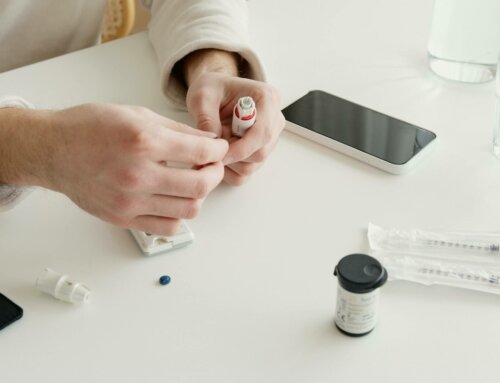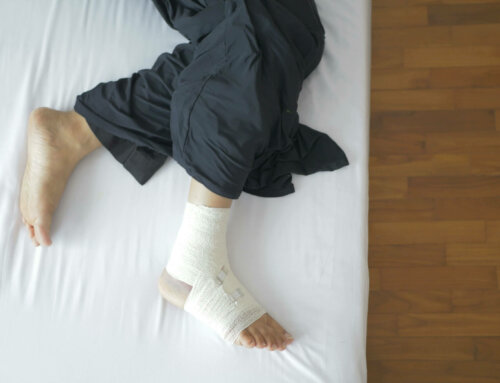When tests came back showing my blood sugar in the range considered diabetic, I found myself caught up in a battery of appointments and disruptions.
It all started when I went to my long-time doctor for my yearly exam. I asked if he thought there would be any benefit to my seeing a dietician. I’d tried for many years to lose weight. I’d have success followed by a halt to the losing, followed by frustration and subsequently more weight gain.
I actually ate very little, but I exercised even less and had a general slug-abed –or, if you prefer “sedentary” –lifestyle. So I envisioned going to a dietician with a logbook of foods eaten for a two or three week period and her saying, “My Goodness. This can’t be. You should be dropping pounds by the dozen.”
My doctor said it certainly couldn’t hurt to see someone and, due to the amount of weight I needed to lose, the insurance should pay for the consultation. Yea, additional incentive.
A month later, I finally had my appointment. The dietician wasn’t in the same clinic as my doctor so that meant going to a new, huge building and working my way through reams of new patient forms. I had to confirm my identity and date of birth every twelve feet and prove I was there for the right reasons. Apparently they’ve had a rash of people with my name wandering in off the street asking for help with diet and nutrition.
I expected to be weighed and measured and have my blood pressure taken before I saw the dietician. The surprise came, however, when the nurse recording my height slammed the metal bar from the wall ruler into the top of my head. Her apology was remarkably indifferent. Her entire attitude scored a big zero on my Sweetness and Compassion Scale.
Extra weight caused chronic pain in my hips and back, so the long walk from my car already had me in a peevish mood. The bonk on my head didn’t help. My first impression of the dietician wasn’t off to a good start.
Christy turned out to be nice enough but I didn’t feel she listened to me so much as rattled off a pre-programmed spiel. When I complained of fatigue, she wanted to have my sugar tested. I’d had it tested not long before and it appeared to be in an acceptable range but she wanted a glucose tolerance test, not something they do as a normal part of a yearly exam. She said my doctor might not authorize it, but he did.
I’d decided I would follow through with Christy until I had the test results and at least one more appointment with her. I was prepared to give her the benefit of the doubt, mostly because my doctor referred her.
The glucose tolerance test required fasting overnight, of course; the most difficult part. At the clinic the next morning I drank something terribly sweet and orange then waited to have my blood tested every hour for three hours. While waiting for my rendezvous with the needles, I sat and read. I didn’t think they’d find anything wrong, so I wasn’t nervous. I enjoyed the excuse to relax. Normally, I’d never sit and read for three hours straight. What a luxury.
I had trouble staying awake but I didn’t know if that was a reaction to the drink or to having so much free time on my hands. Usually, the only time I read is when I’m waiting to fall asleep, so maybe my body automatically assumed it was time to nod off after I’d read a few pages.
In a couple of days my doctor’s nurse called and gave me the word: the glucose tolerance test showed a high spike in my sugar at the first hour and second hour. By the third hour, it was back to normal. My A1c test came back at 6.9. She said that meant I had diabetes, but it was at a stage where I might be able to avoid medication if I kept it under control with diet. Oh yes, diet and exercise.
The nurse said they would arrange for appointments with Christy and also a nurse for diabetics counseling. According to a friend, the counseling consisted mostly of the nurse pointing to the pages in a book while the patient followed along. That didn’t sound too tough.
When I returned to the dietician’s clinic, I had more forms to fill out because now I was there as a diabetic patient. One of the questions on the multitude of forms asked how I felt about discovering I had diabetes. A page of choices included emotions such as angry, sad, depressed, relieved, etc. One choice I found amusing was denial. I snorted and wondered how anyone could be in denial about diabetes. The numbers were there. The A1c and glucose tolerance tests both indicated a problem.
Now, if one were to, say, hide a bag of Tavern Mustard kettle potato chips from one’s Significant Other so that she could parcel them out and savor each rapture-inducing portion by herself, this could be perceived as the behavior of someone in denial about an addiction. But, denial of diabetes? How would that work?
One day I emailed my sister and said I had a “touch” of diabetes. I also told people I had a “mild case” of it. Is that like being a little bit pregnant?
The book the nurse sent home lay on my nightstand, untouched. Normally, I would have been scouring the internet and bookstores to find out all I could about the disease, but not this time.
Although I tested my blood daily as I’d been directed and worked on cutting down on the carbs I ate, I still treated this like some kind of a virus that needed to work its way through my system. What I knew on an intellectual level, I wasn’t recognizing on an emotional one.
I met a friend for lunch who had diabetes. She said she was dreading the day she’d have to go on insulin.
“But, if you take care of yourself,” I said, “and watch your diet. Maybe you won’t have to go on insulin.”
She turned her palms up and said simply, “It’s progressive, you know. And, there’s no cure.”
Well, there it was. This wasn’t something simply passing through.
I’d always felt my weight was temporary problem somehow. I’d lose a little then gain a lot, but I always thought the next diet would be the time I could stick with it. But now, because I hadn’t taken care of myself, had I completely and permanently ruined my health?
I suspect that’s why I hadn’t read the book or done the research: I didn’t want to know the answers.
I like to think I’m accepting it now. I feel much better. Whether that’s from eating less sugar or from taking supplements and losing weight, I don’t know.
The only exercise I don’t hate is using a swimming pool even though I can’t swim. I have a floatation belt, foam barbells and a membership with the Swim Club at the local Holiday Inn.
I discovered a program online where I can record the food I eat and it calculates and stores the number of carbs, fat, protein, etc. It’s alarming to see how it all adds up.
I’m even taking advantage of being diabetic. When we go to a restaurant and I ask for substitutions, instead of saying I’m on a diet or trying to cut down on carbs, I throw the D word in and feel totally justified with my requests.
Last week our daily paper had an article about a man who was being indicted on a particularly nasty crime. He complained the police made him out to be some kind of a monster. “I’m a fifty-nine year old diabetic,” he moaned.
The “counseling” I’ve received so far hasn’t included pointers on how to use diabetes to commit crimes. Maybe with my next appointment…
by mschenten






Leave A Comment